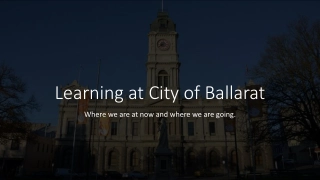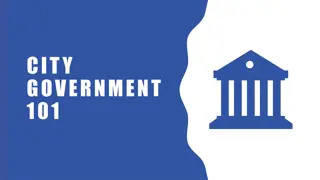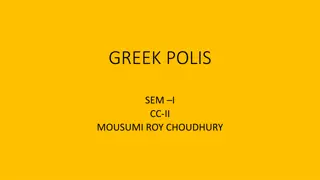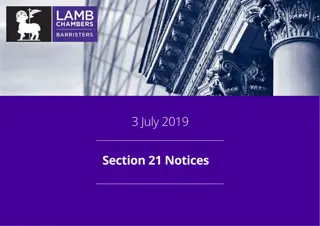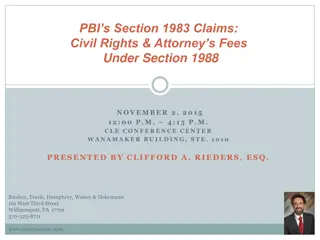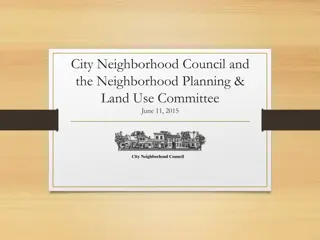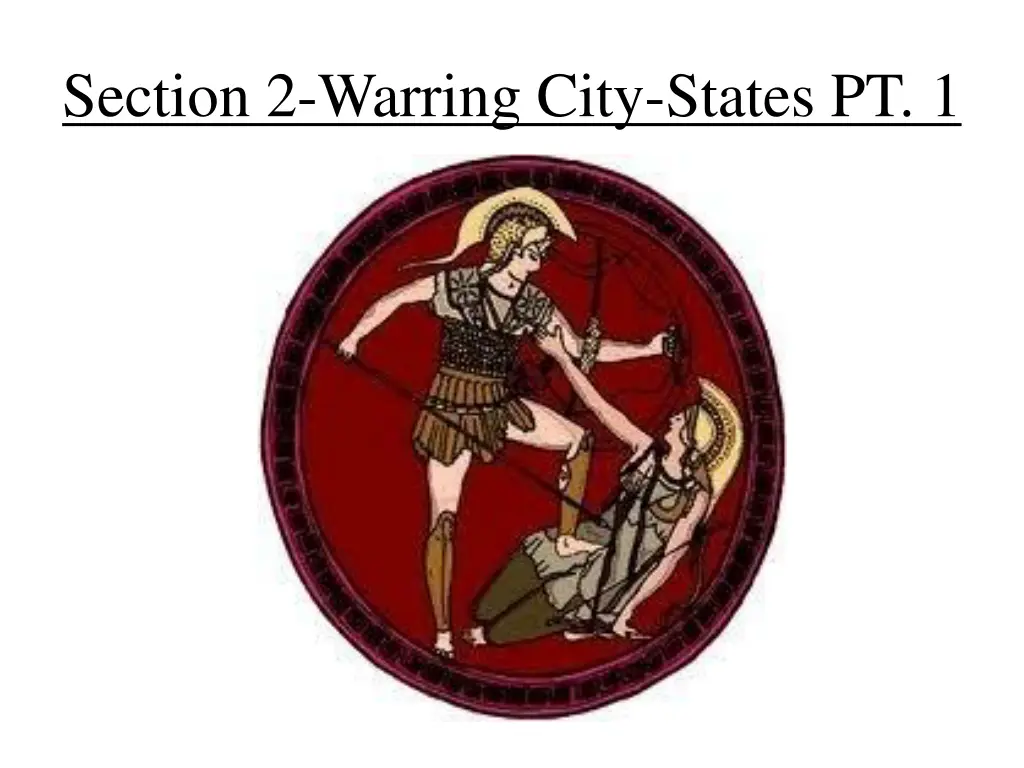
Greek City-States: Rules, Order, and Democracy
Explore the political structures of ancient Greek city-states, including monarchies, aristocracies, oligarchies, and direct democracies. Learn how tyrants seized power and how Athens built a limited democracy through the reforms of Draco and Solon in the 6th century B.C.
Download Presentation

Please find below an Image/Link to download the presentation.
The content on the website is provided AS IS for your information and personal use only. It may not be sold, licensed, or shared on other websites without obtaining consent from the author. If you encounter any issues during the download, it is possible that the publisher has removed the file from their server.
You are allowed to download the files provided on this website for personal or commercial use, subject to the condition that they are used lawfully. All files are the property of their respective owners.
The content on the website is provided AS IS for your information and personal use only. It may not be sold, licensed, or shared on other websites without obtaining consent from the author.
E N D
Presentation Transcript
Rules and Order in Greek City-States- By 750 B.C. the city-state or polis was the fundamental political unit in ancient Greece. Most polis controlled between 50 and 500 square miles of territory and contained fewer than 10,000 residents. Citizens gathered at the acropolis to discuss matters of city government.
Rules and Order in Greek City-States- Greek Political Structures- Greek city states had several different forms of government. Monarchy-A government led by a single ruler. Most often a king or a queen. Aristocracy- A government ruled by a small group of noble land owning families. Oligarchy-A government ruled by a few powerful people. Direct Democracy- A form of government in which citizens ruled directly and not through representatives.
Rules and Order in Greek City-States- Tyrants Seize Power- Powerful individuals called tyrants appealed to the commoners in order to gain political influence. They were neither harsh nor cruel; instead they worked for the good of ordinary citizens. Often set up building projects to provide jobs for those who supported them.
Athens Builds a Limited Democracy- To avoid political upheaval the Greeks moved towards democracy Citizens actively participate in gov. Building Democracy- The first step towards democracy occurred when Draco took power in 621 B.C.
Athens Builds a Limited Democracy- Draco developed a legal code that would allow all Athenians (rich and poor) to be considered equal under the law. Draco s democratic code- Dealt harshly with criminals and made the death penalty standard for practically every crime. Upheld the practice of debt slavery
Athens Builds a Limited Democracy- Solon s democratic reform 594 B.C.- Stated that no citizen should own another citizen, outlawed debt slavery. Organized all Athenians into four social classes according to wealth. Top three classes could hold political offices. All citizens regardless of class could participate in the Athenian assembly. Introduced the concept that any citizen could bring up charges against wrongdoers.
Athens Builds a Limited Democracy- Under Cleisthenes citizenship was limited to a small number of Athenians. Free property owning adult males born in Athens were considered citizens. Women, slaves, and foreigners had relatively few rights.
Athens Builds a Limited Democracy- Athenian Education-Only the sons of wealthy families received formal educations. Athenian Education: Boys- School started around the age of seven Focused on preparing boys to be good citizens. They studied grammar, poetry, history, math, and music. They also received training in logic and public speaking. Also part of each day was devoted to athletic activities.
Athens Builds a Limited Democracy- The Girls- Athenian girls did not go to school rather they learned from their mothers and other women at home. Girls would learn about child rearing, weaving cloth, preparing meals, managing the household to become good wives and mothers. Wealthy women learned to read and write.


